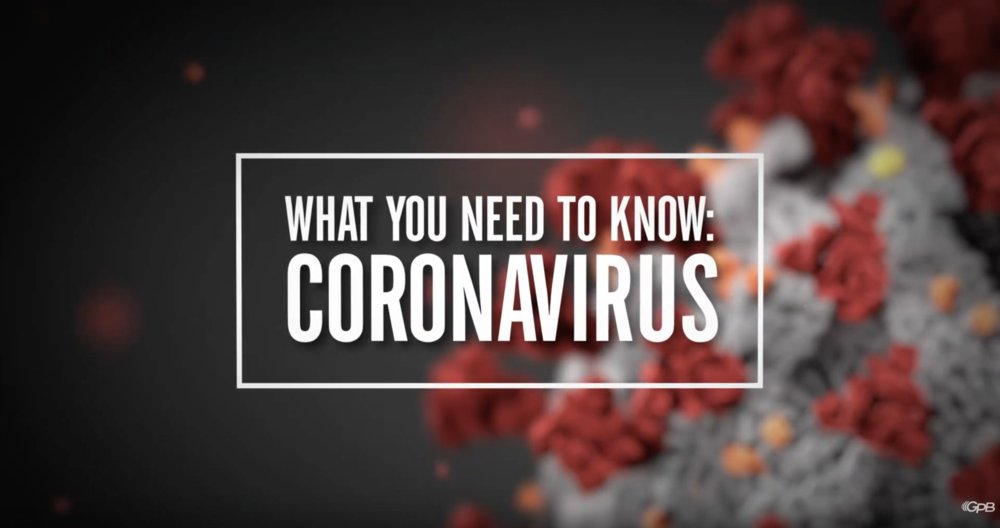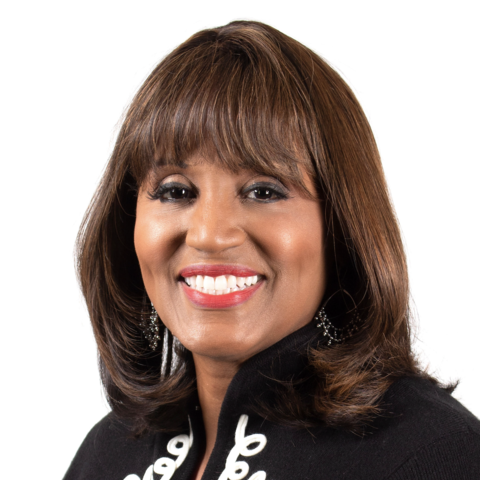Section Branding
Header Content
What You Need To Know: Nurse Is 'Georgia Strong' While Treating NY Patients
Primary Content
Georgia Public Broadcasting’s new series What You Need To Know: Coronavirus provides succinct, fact-based information to help you get through the coronavirus pandemic with your health and sanity intact.
Donna Lowry spoke with Cassie Marcelus, a Georgia nurse treating COVID-19 patients in New York, for an update in the pandemic hotspot last week.
Let's talk about the people that you've been serving and how they are right now. You've been seeing some people actually do well.
Yes. What comes to mind more readily than anything else is a husband and wife team that I was able to take care of.
I had the wife assigned to me first. And just through conversation, she was like, "You know, my husband is here."
I'm thinking, "Here? How did you get in the hospital to visit? Because I know that, you know, there are no visitors."
And she says, "No, he's a patient." [I said] "Well, why aren't you rooming together?" Just because of the dynamics of the floor, they were not able to be housed together. And so we kind of got into our advocacy mode like us nurses do and we were able to — it took about a half a day, but we were able to get them to be able to roam in the same room, which is great because even though you have the symptoms that — the stress of having COVID, it was just so nice that they were able to heal together.
But the bright side is that they went home. They were home after about three days. They were able to go home.
And that's because they tested negative?
Yes. What they do is they will — when you test positive, then after their treatment regimen or whatever, they will test you again. And they ended up testing negative and were able to be discharged.
Now, they would have to quarantine when they get home. So they'll quarantine for the 14 days they have an 18-year-old son. So they sent him to stay with a relative and they were able to go home. So it was a happy time.
And you're able to help. You and the rest of the nursing staff help determine who is able to go home. Tell us how you guys communicate about those kinds of things on different channels.
Yeah, it is a team effort. Of course, the doctors run the team, so to speak. They run the show. But we're real big in advocacy, keeping up with the numbers, working with the social workers at any other type outreach committees that sit there at the hospital.
A lot of the homeless people are in shelters. And then once they come, if they test positive and they come into the hospital, those shelter beds are not held for them. So sometimes it's hard for them to be discharged back to where they came from.
So social work, I have to say, is very, very busy as well. This pandemic really takes all hands on deck.
So once we see a patient, we're like, "Their temperatures have been OK for the past couple days. They no longer required oxygen in their room. Now they're walking around. They're doing better. What can we do to get them out of here?"
And by me working the night shift, I'm not privileged to have a social worker because I don't work 24 hours. But we pass it on as I pass the baton, so to speak, to the day shift nurse and be like, "Look, is this in our report? Let's see first thing with the physicians' rounds." First thing we want to mention is when can this patient go home? We want to get him out of there. You can come to the hospital and get sick.
The last thing I want to ask you about is who takes care of you and the other nurses in terms of— this is tough work mentally, emotionally.
I'm super proud to say that there have been a lot of processes put into place for the healthcare providers. Here with the agency that I'm here with on all our ballrooms, they have kind of like an employee health type setup where we have nurse practitioners and we have physicians assistants that are just here for us. If you become symptomatic, there's someone here to treat you. If you could get a common cold or — anything can befall you because we're humans. And so they're set up.
We also have a counseling service that has been made available to us. But just those times that you need to de-escalate, you may need to talk. We have been encouraged, strongly encouraged through email, through text messages that if you need to talk to someone, come down. Here's the number. Here's how you can reach that person. If you're not feeling well, take time.
When we first came, it was very widely known that the requirement was that we work 21 days and then we would get two days off. But since then, administration has been very responsive. So now you're able if you want to work 14 days and take one day off, you can. And that's the option I'm choosing. So my first day will be on Sunday.
And you're looking forward to it, I know.
I am looking forward to it. But I have to say that, you know, I'm Georgia strong. I'm Georgia strong. So we stick together. There's so much camaraderie here. I mean, just the spirit and the resiliency of the nurses kind of rubs off and kind of rub off on each other. Now, I'm happy to report that. So we are being taken care of and we do have numbers. There are hotline numbers, you know, directly to administration, clinical leaders that we can call should any needs arise.


